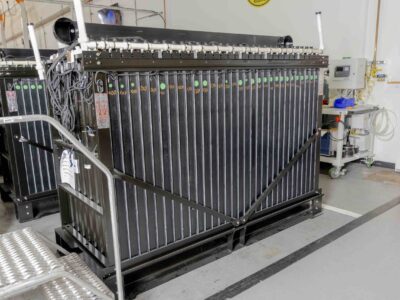If you wonder what steps you can take to conserve the natural world where we hike, fish, hunt or camp, start with the steps you take with your feet. Your shoes can have an impact on your own carbon footprint – literally – depending on the footwear’s materials and how they were sourced.
Outdoor lifestyle brand Timberland wants to help. The company in May announced a partnership with the non-profit Savory Institute to launch a collection of boots made of regenerative leather sourced from Thousand Hills Lifetime Grazed ranches in Minnesota. That announcement followed other recent moves Timberland has made to increase its focus on regenerative grazing practices and use more recycled materials in its footwear and apparel. These and other initiatives are part of a broader effort by Timberland to reduce its carbon footprint and provide a road map for other fashion brands to follow suit.
“The fashion industry has a significant impact on greenhouse gas emissions, and we believe it’s all of our responsibility to be a part of the solution,” said Colleen Vien, director of sustainability for Timberland. “Regenerative agriculture presents a powerful opportunity to go beyond simply minimizing our impact, to actually create value and have a net positive effect for the land and the farmers. Timberland is incredibly excited to be partnering with The Savory Institute to drive real and meaningful change.”
In the cattle industry, regenerative agriculture basically means letting cows graze according to the natural movement of herd animals rather than having them exhaust one area of grassland before moving on to another. Regenerative grazing allows grass to rest and re-grow, which produces better food for livestock, healthier soil, reduced carbon emissions, enhanced biodiversity and improved water cycling.
The Savory Institute is a leading advocate for the large-scale regeneration of the world’s grasslands, and Timberland is one of the Institute’s financial supporters as well as a member of its “Land to Market Frontier Founder” corporate advisory program. As such, Timberland will co-fund Savory Institute’s Ecological Outcome Verification process on all Thousand Hills Lifetime Grazed ranches. This process measures the tangible regenerative benefits that occur on the land and also provides data that farmers and ranchers can use to improve their practices.
Supporters of regenerative farming say moving into the world of fashion provides an opportunity to expand the practice into new areas.
“The regenerative movement has largely been focused on the food industry to date, but we at Savory Institute believe there is an opportunity to simultaneously synergize with the apparel industry and open up unparalleled successes for the planet,” said Chris Kerston, chief commercial officer for the Institute’s Land to Market program.
Timberland’s partnership with The Savory Institute comes on the heels of a similar collaboration with Other Half Processing, which sources hides from Thousand Hills Lifetime Grazed regenerative ranches. The aim of that collaboration is to build a more sustainable leather supply chain.
In another recent move designed to reduce its carbon footprint, Timberland created a collection of outerwear, footwear and accessories that feature ReBOTL, a material made from recycled plastic bottles. As noted on HypeBeast, Timberland has already recycled more than 445 metric tons of plastic waste with the ReBOTL method, which transforms discarded bottles into Recycled Polyethylene Terephthalate (RPET).
The ReBOTL line will include men’s outerwear styles such as coach and worker jackets, bomber jackets, windbreakers and pants. Each garment is composed of nearly 40 percent recycled plastic bottles.





